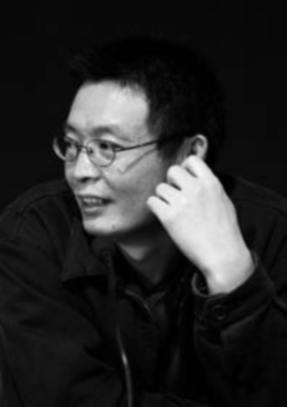Decipher the Overseas Success of “Decoded”
Early in 2014, the Chinese spy thriller, which the New York Times Book Review declared “truly is a page turner,” captured the international book market. Published in 21 countries, including Britain and the U.S., Decoded, the English translation of Mai Jia’s Jie Mi, broke international records for Chinese authored works, and made 17th ranking in the Amazon list of U.S. fiction best-sellers. The shot of Mai Jia, chin cupped in hand beaming a piercing bespectacled gaze, is now a staple item in English language media book review columns. A writer who avoids bright-light publicity, Mai Jia has been labeled the “Dan Brown of China.”
|
 |
|
Writer Mai Jia. |
Decoded is an account of the meteoric rise and Icarus-like fall of math genius Rong Jinzhen. Twice adopted and afflicted by autism, the protagonist becomes a cryptographer by chance, and dedicates his talents to the nation. Having pulled off extraordinary feats of code breaking, Rong Jinzhen crumbles into insanity after losing the notebook containing his cryptographic calculations and conclusions relating to an extraordinarily indecipherable code.
First published in 2002, Mai Jia’s debut novel Decoded has won him fame and laurels. After its adaptation into a TV series he became a household name in China. It was not until a dozen years later that Decoded, Olivia Milburn and Christopher Payne’s translation of Jie Mi, elevated Mai Jia to the ranks of best-selling authors. New York publisher FSG (Farrar, Straus, and Giroux) agreed to pay Mai Jia an unheard of 15 percent in royalties, conditional upon sales of a nominal 10,000 copies of Decoded, and gave him an advance of US $100,000 on his next work.
“This level of royalties and advance is the highest I have ever witnessed during my ten or more years in the copyright business,” Mai Jia’s overseas copyright agent Tan Guanglei said. “Chinese writers generally receive between six and eight percent.” Tan is president and founder of the Taipei-based Grayhawk Agency. Since establishing their business relationship in 2010, Tan has recommended 14 Chinese novels to FSG, but none made it to press. But when FSG read Jie Mi, they couldn’t wait to publish it, and even signed a contract for Mai’s second novel An Suan (Plotting in the Dark).
Mai Jia’s accomplishment has without doubt stimulated the Chinese literature market. China’s book trade has long been in deficit. In 2003, introduced copyrights outnumbered 15-fold those exported. The ratio gradually improved to 1.9:1 in 2012, but exports have been limited to books on traditional Chinese medicine, ancient books, paintings and calligraphy, to destinations like China’s Hong Kong, Macao, Taiwan, and South Korea and Japan, where Chinese culture traditionally radiates.
The West’s keen response to Mai’s thriller is, of course, due to its compelling ingredients of suspense, family saga, code-cracking and modern Chinese history – a combination that conjures a fascinating story. But the book’s “unexpected” success also owes much to two key elements – the translator and the agent. “Decoding” these two links will likely help familiarize international readers with more good works of Chinese fiction.
- Dang Zhongxin: Breathing New Life into an Antique Opera
- Confucius: Education Should Be Accessible to Everyone – Confucius Institute Düsseldorf Builds a Bridge to Chinese Language and Culture
- Decipher the Overseas Success of “Decoded”
- If You Are the One: Love at First Sight
- Chinese Contemporary Artists (7) Wang Tiantian: A Different Story to Tell from Previous Generations
